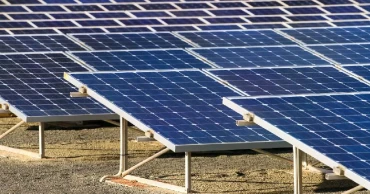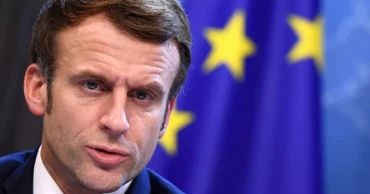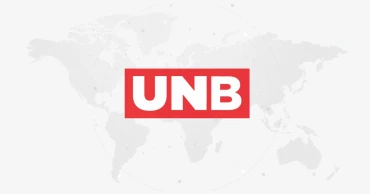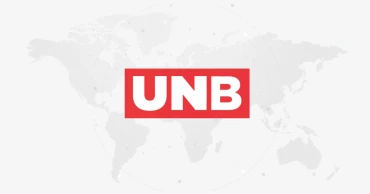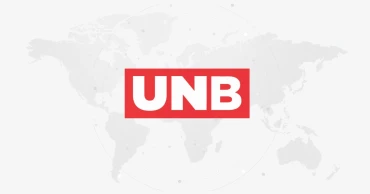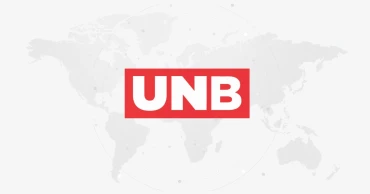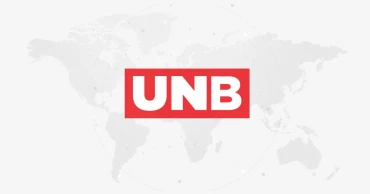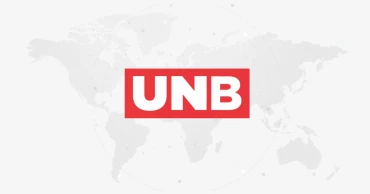Funding
UNICEF appeals for US$9.9 bln funding to support children hit by conflict, crisis
UNICEF has launched a US$ 9.9 billion funding appeal to reach 109 million children in 146 countries with lifesaving aid next year.
Around the world, 213 million children are at the sharp end of unpredictable and volatile humanitarian emergencies.
The funds will be utilised in UNICEF’s humanitarian response to multiple conflicts, climate shocks, displacement, and health crises expected next year.
With 109 million children targeted by UNICEF for humanitarian assistance in 2025, donor funding is critical to ensure the response is timely, effective, and sufficient.
“The scale of children’s humanitarian needs is at a historically high level, with more children impacted every day,” said UNICEF Executive Director Catherine Russell.
In 2024, over 57.5 million children were born into countries affected by conflict or other humanitarian crises where UNICEF has an emergency appeal.
That figure is expected to rise by at least 400,000 in 2025, it said.
The US$9.9billion appeal for 2025 highlights the pressing need to tackle a growing array of humanitarian challenges confronting children in 146 countries.
The top five appeals by funding requirements for 2025 are for Afghanistan, Sudan, Democratic Republic of the Congo, Palestine and Lebanon.
Afghan economy shows modest signs of growth but recovery remains fragile, says World Bank
Last year, donors contributed more than 50 per cent of UNICEF’s thematic humanitarian funding to just four emergencies – Afghanistan, Ethiopia, Syria, and Ukraine – a fraction of the 412 emergencies UNICEF responded to in 107 countries.
Meanwhile, humanitarian operations in countries like Burkina Faso, Lebanon, Uganda, the Democratic Republic of Congo, Mali, and Myanmar are the most severely underfunded.
“Support through flexible humanitarian funding is critical for our work for children affected by crises,” said Russell.
1 year ago
What to Consider Before Taking a Personal Loan from a Bangladeshi Bank
Personal loans are a great option for those looking to make a big financial decision in their life. It could be buying a new car, planning a wedding, going on a vacation abroad, paying for higher studies, or getting a new home. Personal loans offer secured debt consolidation as they cover tons of financial needs. While taking out a personal loan is pretty straightforward, you should consider some key aspects before going for one.
Things to Consider Before Taking Out a Personal Loan from a Bangladeshi Bank
Purpose of the Loan
Personal loans are mostly taken as a form of investment source. It can be debt consolidation or a major investment for future benefit. Regardless, a loan means incurring a liability until it is paid off. It is important to properly assess whether taking the loan is a feasible decision or not.
It is also important to consider alternative funding sources like personal savings, emergency funds, or borrowing from family.
Interest Rate
One of the prime things to consider is the interest rate accrued to the loan capital. Currently, Bangladesh Bank has a regulation in place that outlines the upper limit that can be charged by the banks. The Bangladesh Bank interest rate regulation can be checked from the lending rate of scheduled banks (https://www.bb.org.bd/en/index.php/financialactivity/interestlending).
Read more: Top 10 Strongest Currencies in the World as of May 2024
Additionally, a borrower can use websites like aamartaka.com to compare the rates among banks, check eligibility criteria, and even apply through their designated channels.
Understand the Eligibility Criteria
The first thing to consider while applying for a personal loan is to understand the eligibility criteria. Personal loans can come in both secured and unsecured options. Granted that the unsecured options will incur a higher interest rate.
However, most banks require a set of eligibility criteria for one to apply for a loan. For example, the valuation of collateral against the loan or the liquidity level of the applicant. Other aspects like personal history verification, job verification, income, and salary credit account can also be the eligibility criteria depending on the lender. Another key aspect is the history of bankruptcy or loan default which might disqualify a person from applying for a personal loan.
Have a Good Credit Rating
A credit history is one of the key determinants of loan disbursement abroad. One can’t even apply for a credit card without a stable credit rating, let alone a personal loan. Credit rating determines the creditworthiness of an individual, that is how likely they are to repay a loan based on previous credit history.
Read more: How to Buy Bangladesh Government Treasury Bond: Everything You Need to Know
There are several credit scoring systems globally like FICO score and VantageScore. However, in the case of Bangladesh, the banks and NBFIs do not follow a set credit score while approving loans. Alternative credit scoring like asset ownership, utility payments, device data, and rental payments are taken into consideration. It is mostly because a large portion of the demographic is unbanked or underbanked to make credit scoring the sole determinant for loan approval.
1 year ago
First private sector solar project in Bangladesh secures $121.55 million funding from ADB
The Asian Development Bank (ADB) has signed a $121.55 million financing package with Dynamic Sun Energy Private Limited to build and operate a 100-megawatt (MW) grid-connected solar photovoltaic power plant in Pabna, Bangladesh.
The plant is the country’s first private sector utility-scale solar facility to secure support from global financiers, said the Manilla-based lending agency on Monday (April 29, 2024).
ADB arranged, structured, and syndicated the debt package as the sole mandated lead arranger and bookrunner.
The financing package comprises a $46.75 million loan from ADB, a syndicated B-loan of $28.05 million from ILX Fund I, an Amsterdam-based emerging market private credit fund focused on supporting the Sustainable Development Goals with ADB as lender of record, and a syndicated parallel loan of $46.75 million from the Japan International Cooperation Agency.
Competition policy can unlock increased FDI flows into Bangladesh: ADB Country Director to MCCI
“As Asia’s climate bank, ADB welcomes the opportunity to support renewable energy in Bangladesh, where obtaining long-term financing for such projects is a challenge,” said ADB Private Sector Operations Department Director General Suzanne Gaboury.
“This partnership exemplifies our lead role in mobilising financing for clean energy facilities and stimulating further investment in sectors where it’s needed the most.”
The solar power plant will generate 193.5 gigawatt-hours of electricity annually and avoid 93,654 tons of carbon dioxide emissions annually.
“We are delighted to secure financing for one of the largest private sector solar projects in Bangladesh to date, with the support of international lenders led by ADB,” said PT Managing Director Shakhawat Hossain.
“Partnering with an internationally reputable financial institution such as ADB affirms PT’s dedication to sustainability and marks a significant stride in our journey towards sustainable growth.”
Banks tailoring offshore services with lucrative benefits aimed at wealthy NRBs
DSE is owned by Paramount Textile PLC (PT), one of the largest woven textile manufacturers in Bangladesh, which also operates several power plants.
PT manufactures high-quality yarn-dyed and printed woven fabrics using a wide range of yarns, modern weaving technologies, and print types.
PT was publicly listed on the Dhaka and Chittagong stock exchanges in 2013.
1 year ago
Macron says France will sign agreement with Bangladesh to finance climate-change adaptation, loss and damage in first half of 2024
French President Emmanuel Macron has said his country will sign an agreement with Bangladesh to finance climate-change adaptation and loss and damage in the first half of 2024.
The French Development Agency will be contributing €1 billion ($1.1 billion) in investment, and the IMF will be extending up to $1 billion worth of SDRs in new loans, Macron said.
"This also implies identifying, on a global scale, governance mechanisms for the most crucial challenges we will have to face in the coming years, access to water being one of the most pressing. In this regard, France and Kazakhstan will convene a One Water Summit during the United Nations General Assembly in September 2024," wrote the French president in an article, titled "Pillars of Green Wisdom," published by the Project Syndicate.
For the most vulnerable countries, he said, they must create conditions that enable them to finance their climate-change mitigation and adaptation efforts and access the green technologies that are the new engines of growth.
Russia launches the biggest aerial barrage of the war and kills 30 civilians, Ukraine says
"This implies going further than traditional ‘official development assistance’ and doing for vulnerable countries what rich countries did for themselves during the COVID-19 pandemic: pursue an unorthodox fiscal and monetary policy," wrote President Macron.
"The results are already there: in two years, following the initiative we took in Paris in the spring of 2021, we have released over $100 billion in special drawing rights (SDRs, the International Monetary Fund’s reserve asset) for vulnerable countries," he wrote.
By activating this “dormant asset,” Macron said they are extending 20-year loans at near-zero interest rates to finance climate action and pandemic preparedness in the poorest countries.
"We have begun to change debt rules to suspend payments for such countries, should a climate shock occur. And we have changed the mandate of multilateral development banks, such as the World Bank, so that they take more risks and mobilize more private money," he said.
Macron said they are going to continue working on this, including within the framework of the new loss and damage fund, where they must mobilize new private insurance mechanisms in the face of climate risk. "We will start from the specific needs of the hardest-hit countries."
The French president said they will not succeed if they cannot reform the World Bank and the IMF, which play a prominent role in establishing the norms and financing the green transition on a global scale.
Jaishankar meets Putin and Lavrov in Moscow, praises growing trade
Eighty years after their creation, these institutions remain underfunded, relative to the size of the global economy and population, and emerging and developing countries continue to be shut out of their governance, he said.
"But we will not be able to agree on goals and financing until every country negotiating is on an equal footing.To this end, we must review Bretton Woods governance, and ask emerging countries to assume their share of accountability in financing global public goods," said Macron.
He said, “We must not allow the ongoing war in Ukraine and the fighting in Gaza to distract us from collective efforts to reduce our greenhouse-gas emissions, achieve carbon neutrality by 2050, save our biodiversity, and fight poverty and inequality.”
The world’s most advanced economies, which have also been the main CO2 emitters since the industrial revolution, must move away from fossil fuels, he noted.
He also wrote, “Science has set the trajectory: we must move away from coal by 2030, from oil by 2045, and from gas by 2050. While the G7 countries bear the greatest responsibility, China, which is now the second-largest emitter in history, must be fully committed, too.”
“While it is the G7’s responsibility to move away from coal by 2030 (France will have done so in 2027), emerging economies are now the biggest coal consumers. In these countries, we need to speed up the financing of renewables, as well as nuclear power, which, as a manageable and a decarbonized energy source, must play a key role,” he wrote.
Ukraine celebrates Christmas on Dec. 25 for the first time, distancing itself from Russia
“We must also put private financing and trade at the service of the Paris agreement. The cost of investment must be higher for players in the fossil-fuel sector. We need a green interest rate and a brown interest rate. Similarly, we need a climate clause in our trade agreements, because we cannot simultaneously demand that our industries become greener while supporting the liberalization of international trade in polluting products.
“Moreover, we must focus on building the basis of a ‘bio-economy’ that will pay for the services provided by nature. Nature is our best technology to sequester carbon on a large scale. The countries with the most important carbon and biodiversity reserves, especially in the three main tropical forest basins, must obtain much greater resources, determined on a country-by-country basis, in exchange for their stewardship of these vital reserves. France has already launched three contracts of this type at COP28, with Papua New Guinea, the Republic of the Congo, and the Democratic Republic of the Congo,” Macron wrote.
“But reform of the voluntary carbon market is essential. We need to create an international carbon and biodiversity exchange that will allow governmental and private actors to organize voluntary carbon credit swaps, based on sufficiently ambitious criteria to avoid greenwashing, and to remunerate local communities.
“The ocean is our most important carbon sink, and we must protect it. France and Costa Rica will convene the third United Nations Ocean Conference in Nice in June 2025, with the aim of updating international law, including on the prohibition of plastic pollution and on protection of the deep sea and seabed. These reforms would also enable the development of national strategies for seaboard protection by countries with exclusive economic zones,” the French president wrote.
‘A lie’: French ambassador dismisses claim of journalists’ visa requests being denied.
2 years ago
World Bank approves $200 million to help Bangladesh improve primary healthcare for common illnesses including dengue
The World Bank on Wednesday (August 30, 2023) approved $200 million to help Bangladesh improve primary healthcare services for treatment, prevention and referral for common illnesses including mosquito-borne diseases like dengue, and medical waste management in Dhaka North and South City Corporations, Chattogram City Corporation, and Savar and Tarabo municipalities.
The Urban Health, Nutrition and Population Project will establish a network of primary health centers offering a broad range of health, nutrition, and population services along with a direct referral system with secondary and tertiary-level facilities. About 2.5 million children under five in these urban areas will receive services, according to a release from the WB.
Read : World Bank’s cooperation sought to build power transmission lines from Nepal to Bangladesh
The credit is from the World Bank’s International Development Association (IDA), which provides concessional financing, and has a 30-year term with a five-year grace period.
The project will improve antenatal services for women, with a target of over 250,000 women receiving at least four checkups during pregnancy. It will also support hypertension screening and follow-up of about 1.3 million adults. To reduce out-of-pocket expenditure on medical care for the poor people, the project will renovate selected existing public health facilities, including government outdoor dispensaries, and family planning clinics.
The project will also focus on environmental health and preventive services like mosquito control, medical waste management, and behavior change communication to promote healthy lifestyles to prevent illnesses and mitigate the effects of climate change and air pollution on human health.
Read : Govt, World Bank ink $300 million financing deal for skill development, employment of rural youths
It will support the development and implementation of a multi-sectoral strategy to manage infectious disease outbreaks in cities and municipalities. To prevent dengue, the project will introduce a climate-based dengue early warning system and outbreak response capacities as well as take measures to clear breeding sites.
Abdoulaye Seck, World Bank Country Director for Bangladesh and Bhutan, said that Bangladesh has made remarkable progress in improving healthcare, particularly in rural areas.
“But urban areas have limited public healthcare facilities. Hence, poor people and slum dwellers are often forced to turn to more expensive private healthcare. Further, with high population density, climate change, and rapid urbanization, new health challenges are emerging, including an increase of dengue cases, infectious and non-communicable diseases," he said.
Read : Dengue: 7 more die, 2367 hospitalised in 24hrs
Iffat Mahmud, Senior Operations Officer at the World Bank and Task Team Leader for the Project, said that the impact of climate change on mosquito-borne and infectious diseases is often overlooked. An overreliance on fogging or spraying targeting adult mosquitoes and untargeted larval control is not an efficient use of resources.
“As mosquito lifecycle is influenced by climatic conditions, the project will strengthen the mosquito control laboratory and build capacities to implement innovative mosquito control measures and other community-based interventions,” the World Bank official said.
2 years ago
How to Gain Funding for Startup: Best Practices to Attract Investors
Startups are picking up pace across the globe. According to Statista, the number of early-stage venture funds for startups is growing year on year after a dip during the Covid-19 Pandemic peak stage. While a success rate of 10% is projected for all startups in 2023, there is still a silver lining in the form of increased funding. But the key challenge is to secure funding for the startup venture. Let’s explore the different factors that aid in attracting investors for startups.
13 Ways to Attract Investors for Startups
Strong Value Proposition
The main idea behind a startup is to create a solution for an existing problem. A track record of successful startups shows that they took an existing problem and created a solution for it. Then the solution was channelled as a product through the startups.
At the core of this process is a strong value proposition. Successful startups were able to secure early funds from investors because of the strong value of their product or service. Investors look for value in a project. As long as one can show the value and prospects, securing funds becomes much easier.
Read more: What to Consider Before Investing in a Startup or Company?
Detailed Business Plan
Startups aren’t just about ideas. Sure enough, it starts with an idea, but implementing the idea requires a strong business plan. There are a lot of factors in a market that a startup needs to consider before scaling up its product or services. Factors like target market, competitive analysis, marketing strategy, financial projections, and growth plans should be at the centre of a solid business plan. Sharing a strong vision for the startup will help convince the investors to understand the return on investment. And that in turn will help attract investors.
Traction Generation and Milestones
For an investor, numbers are the ultimate deciding factor. An investor will only invest where strong numbers support the claims of the startup. It can include factors like user adoption, revenue generation, or partnerships with key players in the industry.
Try to build up a rapport with incubators and accelerators before approaching potential high-value investors. The more positive the numbers are, the better the chances of attracting investors.
Read more: Seed Fund Raising for Startups: Things to Know About
Having a Strong and Experienced Team
Another key factor that drives investment decisions is the market understanding and experience of the team members. Investors often look for people with a proven track record of managing and executing similar products or services in the market. Sometimes, the lack of early milestones like a marketable product, grants, and incubation can be offset by a strong and motivated team that shares the vision of marketing and scaling a startup.
Networking and Referrals
Beyond experience and numbers, a good way to attract potential investors is through networking and referrals. Networking and referrals help build a personal connection with the investors. A positive word-of-mouth impression or a recommendation from a trusted source helps to highlight and convince investors about the potentiality of a startup. The best way to network and gain referrals is by attending industry events, networking meetups, and startup conferences.
Read more: 7 Local Startups Get Tk 150m Funds from Startup Bangladesh Limited
2 years ago
How to Build a Successful Company?
In today’s fast-paced and ever-evolving business world, the term “successful company” is often used to describe organizations that have managed to achieve exceptional growth, profitability, and market dominance. However, building a successful company is not just about generating high revenues or achieving a large market share. Rather, it is about creating a sustainable business model that delivers real value to customers while ensuring long-term profitability and growth.
Building a successful company is not easy, but it is possible with the right mindset, strategies, and execution. A successful company requires a lot of hard work, dedication, and persistence to overcome obstacles and achieve goals. In this article, we will provide a comprehensive guide to help you build a successful company from scratch.
12 Ways to Build a Successful Company
Building a successful company involves several essential steps. Let’s go over the essential steps you need to build a successful company.
Analyze the Market and Competition
Analyzing the market allows entrepreneurs to identify potential opportunities and gaps in the market that their business can fill. By understanding customer needs, preferences, and trends, businesses can develop products or services that better meet these demands, providing a competitive advantage in the marketplace.
Read More: Silent Partner vs Investor in Business: Know the Difference, Pros and Cons
Develop a Business Plan
Develop a comprehensive business plan to outline your company's goals, strategies, and financial projections. This plan serves as a roadmap for your business and should include your company's vision, mission, and values. In addition to that, identify your target market, analyze the competition, and define your unique selling proposition. Determine the resources and funding required to start and operate your business.
To monitor your expenses and revenue and ensure adequate cash flow for your business in the long term, include financial projections and budgets in your business plan. Building a successful business requires a solid business plan.
This plan will act as a blueprint for your company -- helping you make informed decisions and stay focused on your goals as you face the challenges of entrepreneurship. Developing a well-researched and structured business plan is crucial to transforming your business idea into a thriving company.
2 years ago
Reduction in WFP assistance could drive up crimes, radicalization in Rohingya camps: ARSPH
The Arakan Rohingya Society for Peace and Human Rights (ARSPH), a group based in Cox’s Bazar refugee camps, has expressed deep concerns about the recent announcement that the World Food Programme (WFP) will have to reduce its general food assistance voucher value from USD 12 to USD 10 per person per month, due to a USD 125 million funding shortfall.
“As refugees living in the camp, we know first-hand how difficult it is to survive on even $12 per month, and this reduction is likely to have a devastating impact on the already dire situation of our community. It is hard to fathom how we are going to survive on $10 per month when even with $12 per month, people are struggling to make ends meet,” reads a press release signed by Abdur Rahim, vice-chairman of ARSPH.
Also Read: UN experts for immediate funding to avert food ration cuts for Rohingyas
The reduction of food assistance is likely to lead to a host of new challenges, including extortion, prostitution, human trafficking, drug trafficking, and radicalization, noted the release, adding, “The desperation of our people will create an environment in which these activities thrive, leaving the most vulnerable members of our community at great risk.”
The group pleaded the international community to take urgent action to ensure that the ration sizes do not get cut.
“It is unacceptable that we, as refugees, are being forced to bear the burden of a funding shortfall that is not of our making. The international community must take responsibility for ensuring that we receive the assistance we need to survive,” it said.
Read More: South Korea reaffirms its support for ultimate resolution of Rohingya crisis
On behalf of the Rohingya community, they urged the World Food Programme and other humanitarian organizations to find alternative sources of funding to make up for the shortfall.
“We call on donor countries to increase their contributions to the Rohingya crisis. Our lives depend on it, and we implore the international community not to turn a blind eye to our plight,” it added.
2 years ago
Prime Bank receives $50m from IFC to support trade, forex liquidity needs in Bangladesh
To support export and import-based businesses in coping with global uncertainties induced by the Covid-19 pandemic, International Finance Corporation (IFC) is providing $50 million to Prime Bank Limited in Bangladesh.
This IFC funding will support working capital, trade finance, and foreign exchange liquidity needs of export and import based entities borrowing through Prime Bank’s Offshore Banking unit.
The financing package is part of IFC’s “Fast Track Covid-19 Facility” – a package designed to support countries and private sectors to cope with the impacts of the pandemic under the Working Capital Solutions (WCS) program, according to a media release issued on Monday.
Read More: IFC giving $32.5 million to ensure food security in Bangladesh
IFC has provided a total of $310 million in working capital solutions to banks in Bangladesh and liquidity support to companies since the beginning of the pandemic, including this latest funding to Prime Bank.
Since 2010, IFC has invested over $3.6 billion to help the private sector in Bangladesh grow.This IFC engagement with Prime Bank will also be supported by the International Development Association’s Private Sector Window Blended Finance Facility.
Commercial banks are the largest providers of working capital and foreign exchange trade finance support to manufacturing and infrastructure businesses, key drivers of Bangladesh’s economy.Unexpected turbulence in the global markets has restrained foreign exchange liquidity in the market.
Read More: IFC pledges $6 billion to tackle food insecurity.
With this funding, Prime Bank is expected to extend loans to its export and import-based customers, helping keep businesses afloat, resume exports and preserve jobs.
“IFC’s support reflect resilience of Bangladesh economy and confidence in Prime Bank. IFC has been a valuable partner of Prime Bank since 2014 and this relationship helps us to significantly expand our OBU business. We are really thankful to IFC for its continued support. This fresh funding of USD 50 million targeted for SME clients will help us to grow SME portfolio of the bank,” said Managing Director & CEO of Prime Bank, Hassan O. Rashid.
“It is clear the impacts of Covid-19 are still being felt by a number of businesses in Bangladesh’s key industries, effectively constraining their operating ability,” said Allen Forlemu, Regional Industry Director, Financial Institutions Group, IFC. “This funding package is designed specifically to help ensure businesses in Bangladesh can continue to trade and have access to working capital, helping them maintain operations and preserve jobs. Small and medium-sized businesses, which are the backbone of the country, and have been particularly impacted by the pandemic, are expected to benefit the most from this IFC funding.”
Read More: IFC-led PaCT helped factories cut carbon and water footprints: BGMEA.
3 years ago
World Bank okays $250m for Bangladesh for better environmental management, green investments
The World Bank on Thursday (December 01, 2022) approved $250 million in financing to help Bangladesh strengthen its environmental management and promote private sector participation in green investment.
The Bangladesh Environmental Sustainability and Transformation (BEST) Project will support the Department of Environment to strengthen its technical and administrative capacity.
The project will also help improve environmental regulations and enforcement to curb pollution and improve environmental quality, according to the World Bank.
Read more: Every country is struggling to cope, and Bangladesh is no exception: WB Official
Bangladesh Environmental Sustainability and Transformation will pilot new financing mechanisms to promote green investments in targeted sectors. It will also establish a Green Credit Guarantee Scheme to incentivise the financial sector to support green investments to reduce air pollution.
Successful implementation of the project will help Bangladesh tackle key pollution issues, benefitting over 21 million people living in Greater Dhaka and beyond, the World Bank said.
"Bangladesh's rapid economic growth and urbanisation have come at a high environmental cost in terms of pollution. Not only that the pollution is impacting our health, but also it is eroding the country’s economic competitiveness," said Dandan Chen, World Bank acting country director for Bangladesh and Bhutan.
Read more: WB lauds Bangladesh development under PM Hasina's leadership
Bangladesh Environmental Sustainability and Transformation will strengthen the country's environmental institutions to better control pollution and promote sustainable development, he added.
The project will help construct four vehicle inspection centres using a private-public partnership modality to inspect about 46,000 vehicles annually.
An e-waste management facility will be set up to process 3,500 metric tons of e-waste annually.
Read More: 7.1 million Bangladeshis displaced by climate change in 2022: WHO
The project will help reduce over 1 million metric tons of greenhouse gas emissions from targeted sources, according to the World Bank.
"In newspapers, we regularly see reports on Dhaka's high level of air pollution. The World Bank estimate shows that in 2019, air pollution and lead exposure are responsible for more than one-fifth of the deaths in Bangladesh, costing about 12 percent of the country's GDP," said Jiang Ru, World Bank senior environment specialist and task team leader for the project.
"Strong environmental regulations and strict environmental enforcement will incentivise the private sector to invest in pollution control and green growth and thus help the country to achieve its target of net-zero emissions by 2050."
Read More: EU shakes up climate talks with surprise disaster fund offer
The project will also set up a first-ever network of 22 continuous surface water quality monitoring stations to start monitoring of water quality of Dhaka rivers and targeted international rivers in real-time.
It will also establish continuous water quality monitoring stations to ensure the environmental compliance of selected industrial effluent treatment plants.
The credit is from the World Bank's International Development Association, which provides concessional financing, and has a 30-year term with a five-year grace period.
Read More: UNICEF wants investment in world's first child-focused climate risk financing solution
3 years ago


